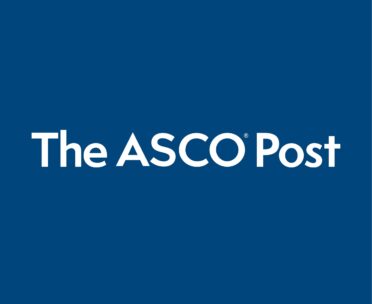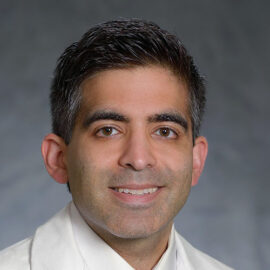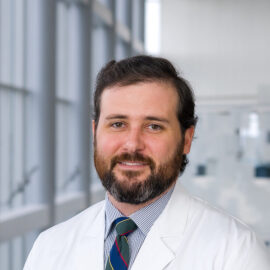
TIME: Text-based Intervention to Minimize the Time Burden of Routine Cancer Care
- Clinical Transformation,
- Health Equity
TIME utilized and evaluated a text messaging e-triage tool to screen patients before their in-person visits with the aim to reduce time burden and improve patient experience. Pending findings, the e-triage system will be implemented across practice models within the Penn Medicine health system.
Patients with advanced cancer spend a significant portion of their remaining survival time interacting with the health system: commuting to, waiting for, and receiving care. For instance, those receiving immunotherapy spend a substantial amount of time prior to each treatment first undergoing toxicity assessments, which consist of lab tests, clinical examinations, and symptom assessments. However, most patients treated with immunotherapy do not experience significant toxicity, thus prompting a consideration of innovative ways to relieve the time burden for this majority of patients.
To address this time burden and improve the patient experience, this study leveraged and evaluated a text messaging e-triage tool in order to screen patients in advance of their office visits. Patients were asked to monitor and report on symptoms. Those without identified side effects could then proceed directly to treatment when they arrive at the clinic.
First, this study aimed to measure the efficacy and performance of a text-based mobile intervention, which assessed toxicity prior to a patient’s immunotherapy treatment. The e-triage assessment consisted of 16 questions sent via a two-way text messaging system 96 hours prior to a patient’s scheduled immunotherapy. The texts prompted patients to share presence and severity of symptoms over the week prior. Second, a randomized control trial (RCT) compared total care times (time spent commuting to, waiting for, and receiving care) between those assigned to the text-based triage system and those receiving standard screening and care.
This novel e-triage program offers the opportunity to streamline cancer care delivery. Findings from this study published in the New England Journal of Medicine demonstrate the effectiveness of a text message e-triage to safely assess treatment readiness and mitigate the impact of time burden. Results showed that the text message-based symptom reporting e-triage saved patients with cancer 30 minutes in wait time and 66 minutes in total care time. To be adopted into clinical practice, further work is needed in order to improve the integration of the e-triage system into routine clinical workflows.
Marjorie and Bryan Weingarten Fellowship Grant; ASCO Conquer Cancer YIA
Text Message Platform May to Help Address ‘Time Toxicity’ in Patients With Cancer
The ASCO Post
February 24, 2025

Text message tool addresses ‘time toxicity’ for cancer patients
Penn Today
February 25, 2025

Project Leads
-

Ronac Mamtani
MD, MSCE
Section Chief - Genitourinary Medical Oncology, Hematology and Oncology, Perelman School of Medicine
-

-

-

Timothy J. Brown
MD
Assistant Professor in the Department of Internal Medicine, University of Texas Southwestern Medical Center
Project Team
-
Mohan Balachandran
-
Justin Bekelman
-
Andrea Bilger
-
Donna Capozzi
-
Roger Cohen
-
Carmen Guerra
-
Michael Josephs
-
Yimei Li
-
Wenrui Li
-
Qi Long
-
Elizabeth Moriarty
-
Caitlin M. O'Neill
-
Larry Shulman
-
David Smith
-
Lindsey Zinck
-
Danielle Zubka
